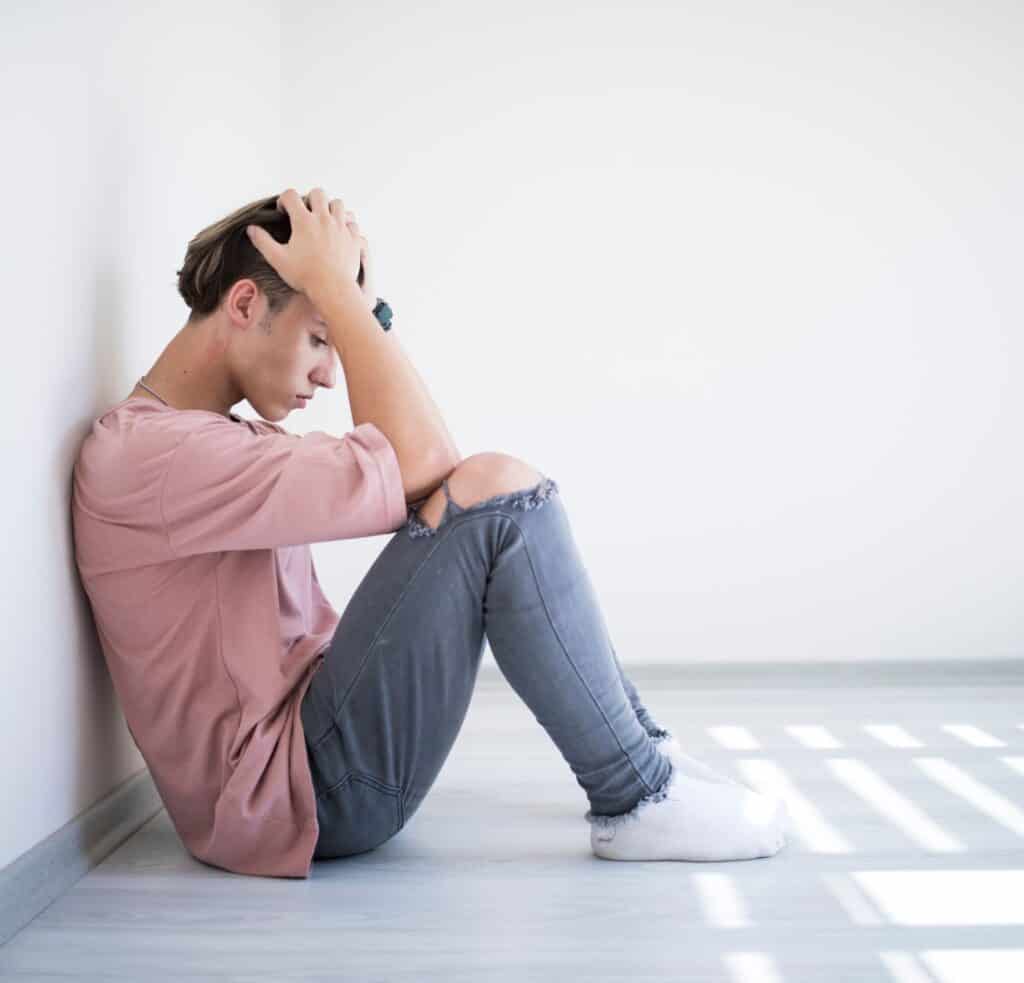Teen PTSD Treatment Center
Treatment for PTSD
Post-traumatic stress disorder (PTSD) develops after a person experiences a traumatic event. The event can have occurred recently or years in the past. Its important to find the right teen PTSD treatment center.
Teenagers who develop this mental health disorder need professional treatment from trained experts who know how to treat PTSD in teens. Our clinicians know how to talk to adolescents and help show them ways to overcome the troubling symptoms that happen after someone goes through a traumatic experience. We keep the family informed so they can learn how to assist their loved one in getting better.

Learning Coping Skills for Anxiety
What Is PTSD?
PTSD is a mental health disorder that happens after a person experiences an event that can be labeled as traumatic. The event can happen to them or they may witness it happening to someone else. The trauma may have occurred recently or even years or decades ago.
Some people who experience trauma find themselves negatively impacted for a short period of time, but are able to recalibrate and move on. For others, it’s not that simple. Their symptoms of PTSD begin and often increase in intensity until they receive proper treatment. The symptoms end up interfering with the person’s ability to function in their usual manner and enjoy their lives.
Examples of traumatic events include:
- Physical assault
- Sexual assault
- Childhood molestation
- Neglect during childhood
- Domestic violence (experiencing firsthand or witnessing it)
- Bullying
- Death of a loved one
- Divorce (one’s own or their parents when the child is young)
- Natural disasters (hurricanes, earthquakes, tornadoes, and more)
- Involvement in an accident
- Being threatened with violence
- Witnessing acts of violence
- Serious illness
- Witnessing military events or acts of war
Regardless of which event or combination of events triggers it, PTSD in teens should be taken seriously. A therapist or other treatment professional can assess teens to see if they have developed PTSD. From there, they can decide on a plan for treatment.
Signs and Symptoms of PTSD
When teen PTSD is present, certain signs will develop. While they vary per person in terms of which ones happen and the intensity of them, many are quite common. These include:
- Easily startled or upset
- Insomnia
- Frequent nightmares
- Flashbacks
- Poor memory
- Feeling numb
- Feeling or acting aggressively or violently
- Experiencing flashbacks to the traumatic event
- Trouble dealing with anniversary dates related to the trauma
- Anxiety
- Feeling detached from family and friends
- Loss of interest in hobbies and pastimes
- Suicidal thoughts or feelings
Young people with PTSD sometimes have signs and symptoms that prove more common for their age group. Teenagers and children sometimes attempt to reenact the traumatic event or aspects of it through what appears to be playing or experimenting.
Some parents and loved ones may mistake the signs of PTSD in teens for a young person just being a teenager. For example, many teenagers experience bouts of depressive feelings or isolate from their loved ones. It can be tempting for family members and even certain clinicians unfamiliar with the signs of PTSD in teenagers to write off what they see as just being part of that age group. Instead, the depression and withdrawal from family and friends may be related to PTSD.
The same can be said for a teenager who engages in self-destructive behavior, such as using drugs or drinking, driving recklessly, or engaging in unsafe sex or sex with multiple partners.
How Teen PTSD Treatment Works
Finding treatment for PTSD in teens starts with looking for a program specifically designed to deal with this challenging mental illness. This type of program understands how to communicate with adolescents and helps them understand the nature of PTSD and how to heal from it.
While some young people respond well to outpatient programs, a residential program can provide a more effective approach with longer-lasting results. A residential program requires the teenager to live in a homelike facility specifically created to address mental health disorders in teens. Many of them also treat any co-occurring substance use disorders. Living away from home while teens work on getting better provides a full-service program that allows the individual to focus on their mental health without distractions.
Types of Therapy
Types of therapy that work well when used to treat PTSD in teenagers include:
- Individual therapy
- Dialectical behavior therapy
- Cognitive behavioral therapy
- Group therapy
Many programs include family therapy as part of their teen PTSD treatment plan. This allows family members to come together and learn about the specifics of PTSD and how it affects their loved ones. From there, the family can work as a unit to help the teenager heal from PTSD.
Begin Treatment for PTSD in Teens in Phoenix, AZ
When someone experiences trauma, the effects don’t stop after the event ends. Even if it was years ago, what happened often bleeds over into every aspect of a person’s life, including how well they do in school and in relationships. Do you have a child aged 13 to 17 who has developed a trauma-related mental illness? Zenith Behavioral Health in Phoenix, Arizona, treats PTSD in teens using several types of therapy modalities and forms of treatment that empower them to overcome the effects of trauma.
Please visit our admissions page now for more information. Let us help your teen child address their PTSD and begin to recover.






Recovery Resources
- Residential Treatment
- Admissions Process
- Frequently Asked Questions
- Insurance Verification
- Contact Us
Your Recovery Starts Here
Our team is ready 24/7 to help you or your loved one begin your recovery & take advantage of what life has to offer.

Teen Post-Traumatic Stress Disorder Treatment in Phoenix, Arizona
Our Detox & Mental Health Rehab Accepts Medicaid
Has your child’s life become ruled by PTSD, and are you ready to help them take back the reins? Our adolescent residential treatment center in Phoenix, AZ, can help. Call (602) 847-9887 or fill out the confidential callback form below and learn how we can help your child live a life free from mental health challenges.

